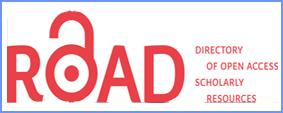EDUCATION PERSPECTIVE EVALUATING SERVICE SECTORS’S STRATEGIES OF THE THAI GOVERNMENT IN THE DEEP SOUTH OF THAILAND
Abstract
This study examines and analyzes the educational strategies pursued by the Thai government in Thailand with particular focus in the Deep South of the country. Its approach is primarily an eclectic, by concentrating on the strengths and weaknesses of the educational strategies as pursued by Thailand. This paper is divided into five parts. The first part looks at the role of education in resolving the conflict in the region. The second part looks at the integration of Pondok/Islamic educational system into Thai educational system. The third part looks at the Thai government’s effort in rebuilding education in the conflict-affected Area. The fourth looks at the bridging education with peace. The last part looks at the effectiveness/efficiency of the Bangkok government’s educational strategies. The data for this study were collected from both primary and secondary sources and analyzed using qualitative method. The primary sources include documents, SBPAC’s annual reports and press release. In addition, the researcher analyzed the outputs of the SBPAC policy-makers relating to the research topic such as speeches, official correspondences and decisions of the organization relating to the management of the conflict in the Deep South. Interviews with knowledgeable people, prominent political and/or religious leaders, key stakeholders as well as the Thai officials were also conducted. The Secondary sources included books, journal articles, newspapers and reliable websites. The study revealed that the Thai government’s educational strategies in the Deep South have not been very effective because the former has struggled to get better understanding of people and to understand the Muslim’s way of life properly. In addition, the Thai government has not push much effort on getting people participating in generating educational strategies that suitable with the area and completely serves their needs.References
Annual Report The Southern Border Provinces Administrative Center. Thailand, (2010).
Foreign Office. Prospects for Development in the Border Provinces. The Government Public Relations Department. http://thailand.prd.go.th/ebook/review/content.php?chapterID=182. Retrieved March 23rd 2012.
Gurr, R. H. (1989). Violence in America: Protest Rebellion, Reform. London: Sage Publications.
International Crisis Group (ICG). (2009). Recruiting Militants in Southern Thailand. Asia Report N°170: International Crisis Group. 22 June.
Kaewsom, C. (2015). The Effectiveness of The Southern Border Provinces Administrative Center (SBPAC) in Managing the Deep South Conflict in Thailand 2006-2012 an Organizational Approach.
Medrano, A. D. (2007). “Islamic Education in Southern Thailand.” Islam in Southeast Asia, 7(2), Spring.
Moonla, P. (2012). Governor of Southern Border Province of Pattani Administrative Centre. Interview. August 29. Thailand: Pattani.
Narongraksakhet, I. (2006). “Educational Change for Building Peace in Southern Border Provinces of Thailand.” In Understanding Conflict and Approaching Peace in Southern Thailand, eds. L. Schmidt and I. Yusuf. Thailand: Konrad Adenauer Stiftung.
Pitsuwan, S. (1985). Islam and Malay Nationalism: A case Study of the Malay-Muslims of Southern Thailand. Thai Khadi Research Institute: Thammasat University, Bangkok.
Smith, A., & Vaux, T. (2003). Education, conflict, and international development. London: Department of International Development.
AonThong, S. (2012). Director of Institution for Policy and Plan of SBPAC. Interview. August 29. Pattani: Thailand.
The Ministry of Education. (2010). Key Educational Policy of Ministry of Education in the Southern Border Provinces of Thailand. Office of the Minister. MOE. News No 159/2552. September 27th.
UNICEF. 2009. Quality of Education. http://www.unicef.org/ thailand/education15799.html. Retrieved October 2nd, 2012,
Watcharasukhum, P. (2012). Committee at the SBPAC and Academics at Rajaphat Yala University. Interview. August 30. Thailand: Yala.
Wetchasat, P. (2012). Director of Education Development Centre & Assistance Secretary of the SBPAC. Interview. August 26. Thailand: Pattani.




.png)









